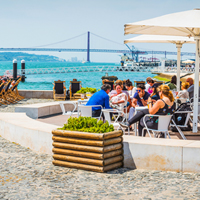

Turn relocation stress into success with AnchorLess.
From obtaining your NIF to a complete VISA support, we will be your guide through Portuguese administrative.
Learn More
 AnchorLess
AnchorLessTurn relocation stress into success with AnchorLess.
From obtaining your NIF to a complete VISA support, we will be your guide through Portuguese administrative.
Learn More
Copyright 1997-2025 Burlingame Interactive, Inc.